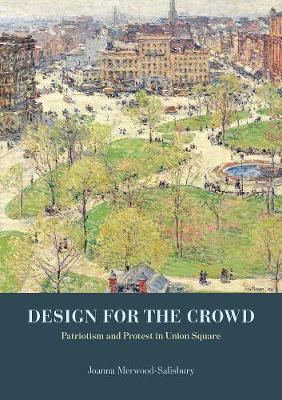Situated on Broadway between Fourteenth and Seventeenth Streets, Union Square occupies a central place in both the geography and the history of New York City. Though this compact space was originally designed in 1830 to beautify a residential neighborhood and boost property values, by the early days of the Civil War, New Yorkers had transformed Union Square into a gathering place for political debate and protest. As public use of the square changed, so, too, did its design. When Frederick Law Olmsted and Calvert Vaux redesigned the park in the late nineteenth century, they sought to enhance its potential as a space for the orderly expression of public sentiment. A few decades later, anarchists and Communist activists, including Emma Goldberg, turned Union Square into a regular gathering place where they would advocate for radical change. In response, a series of city administrations and business groups sought to quash this unruly form of dissidence by remaking the square into a new kind of patriotic space. As Joanna Merwood-Salisbury shows us in Design for the Crowd, the history of Union Square illustrates ongoing debates over the proper organization of urban space--and competing images of the public that uses it.
In this sweeping history of an iconic urban square, Merwood-Salisbury gives us a review of American political activism, philosophies of urban design, and the many ways in which a seemingly stable landmark can change through public engagement and design.
Published with the support of Furthermore: a program of the J. M. Kaplan Fund.
- ISBN13 9780226080826
- Publish Date 1 May 2019
- Publish Status Active
- Publish Country US
- Imprint University of Chicago Press
- Format Hardcover
- Pages 312
- Language English
- URL http://wiley.com/remtitle.cgi?isbn=9780226080826
